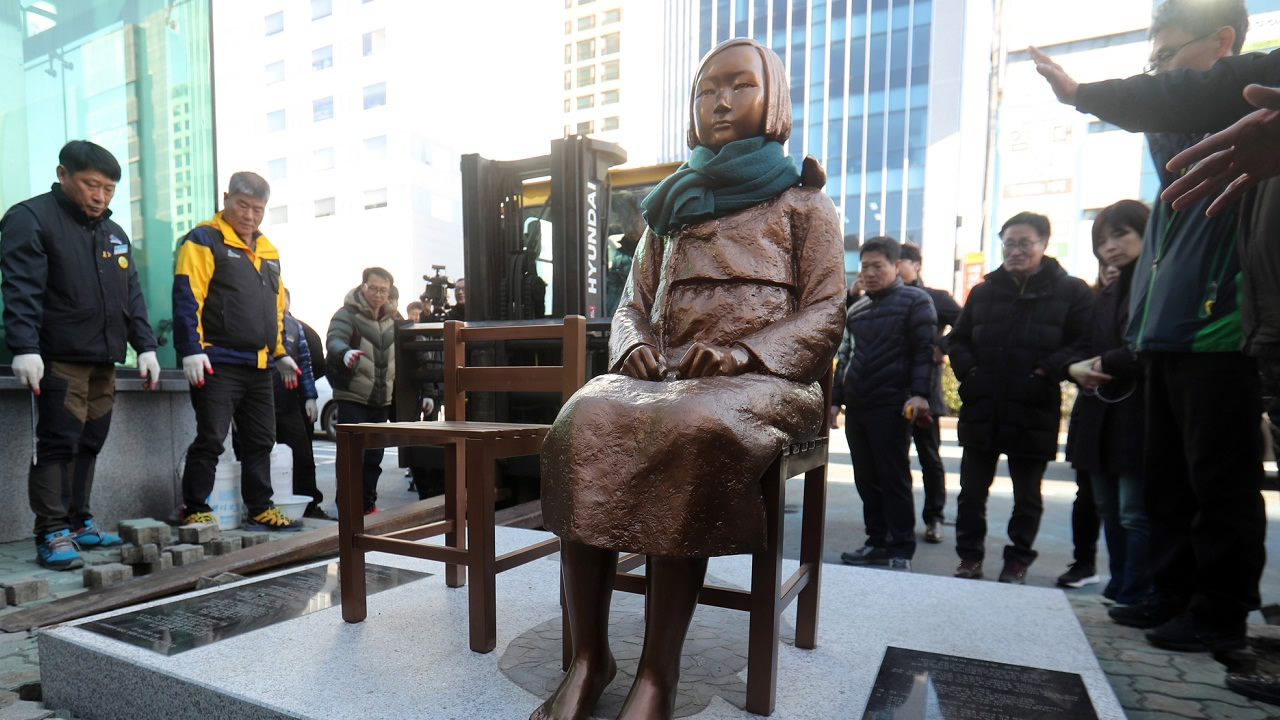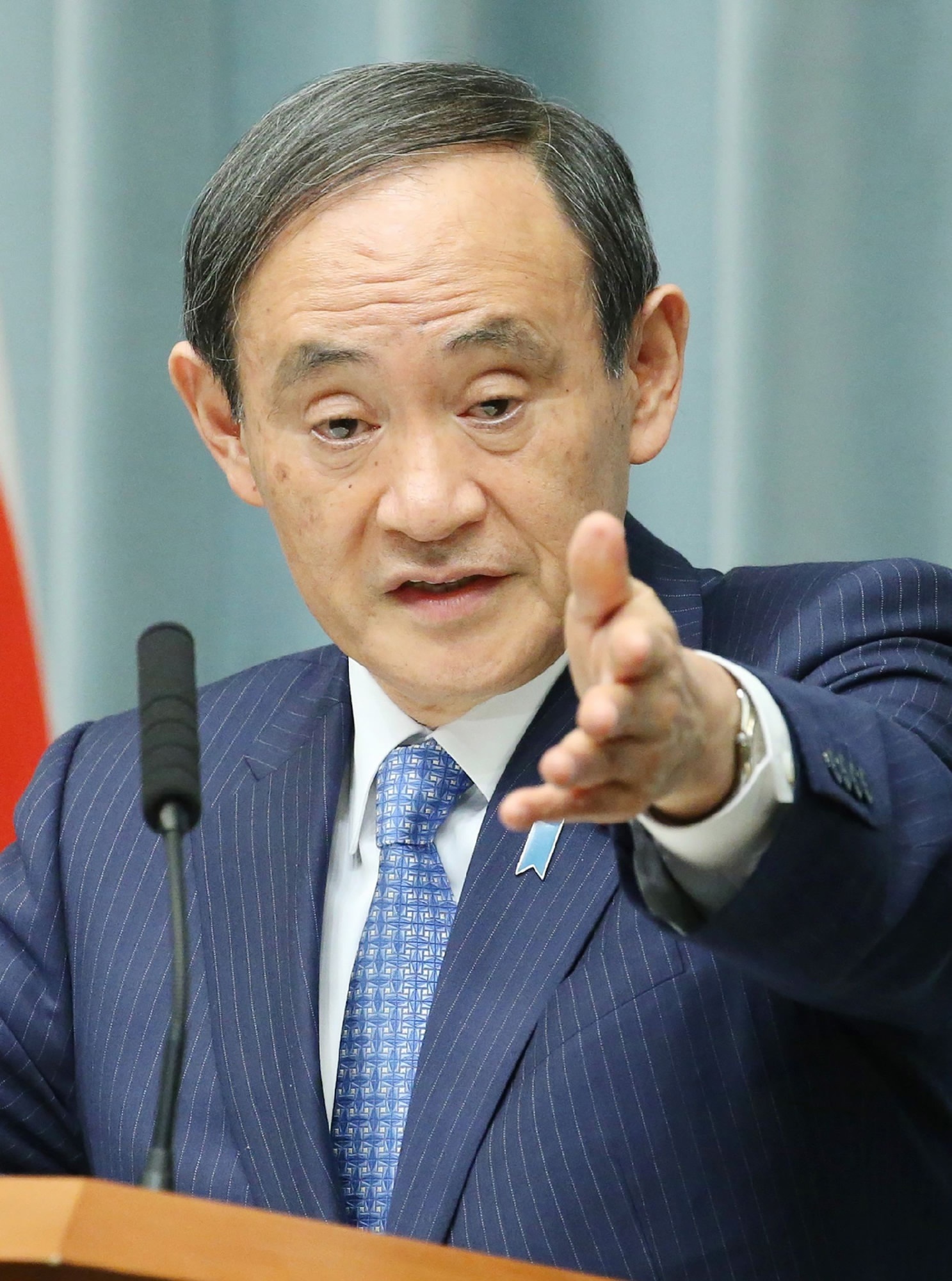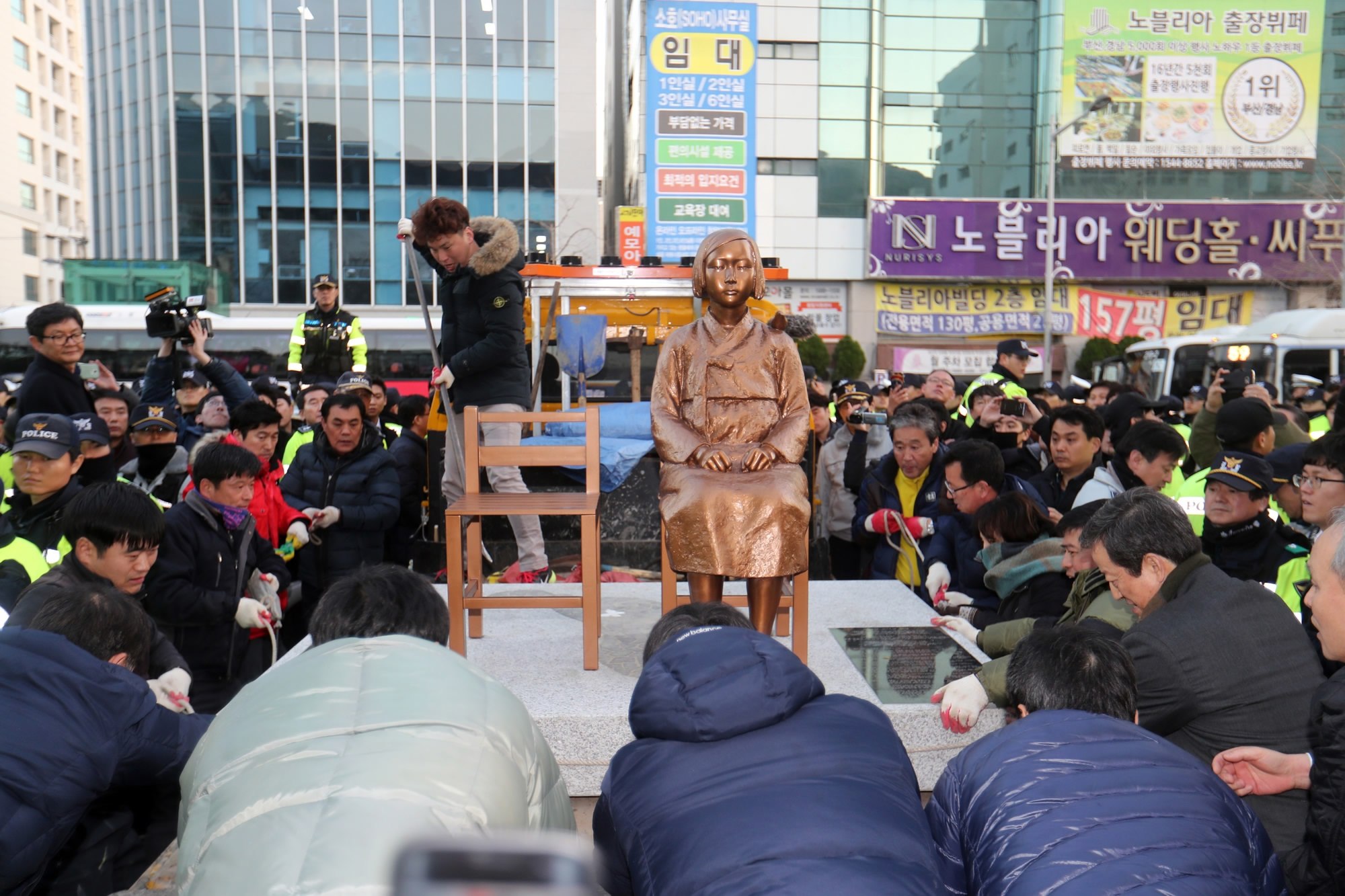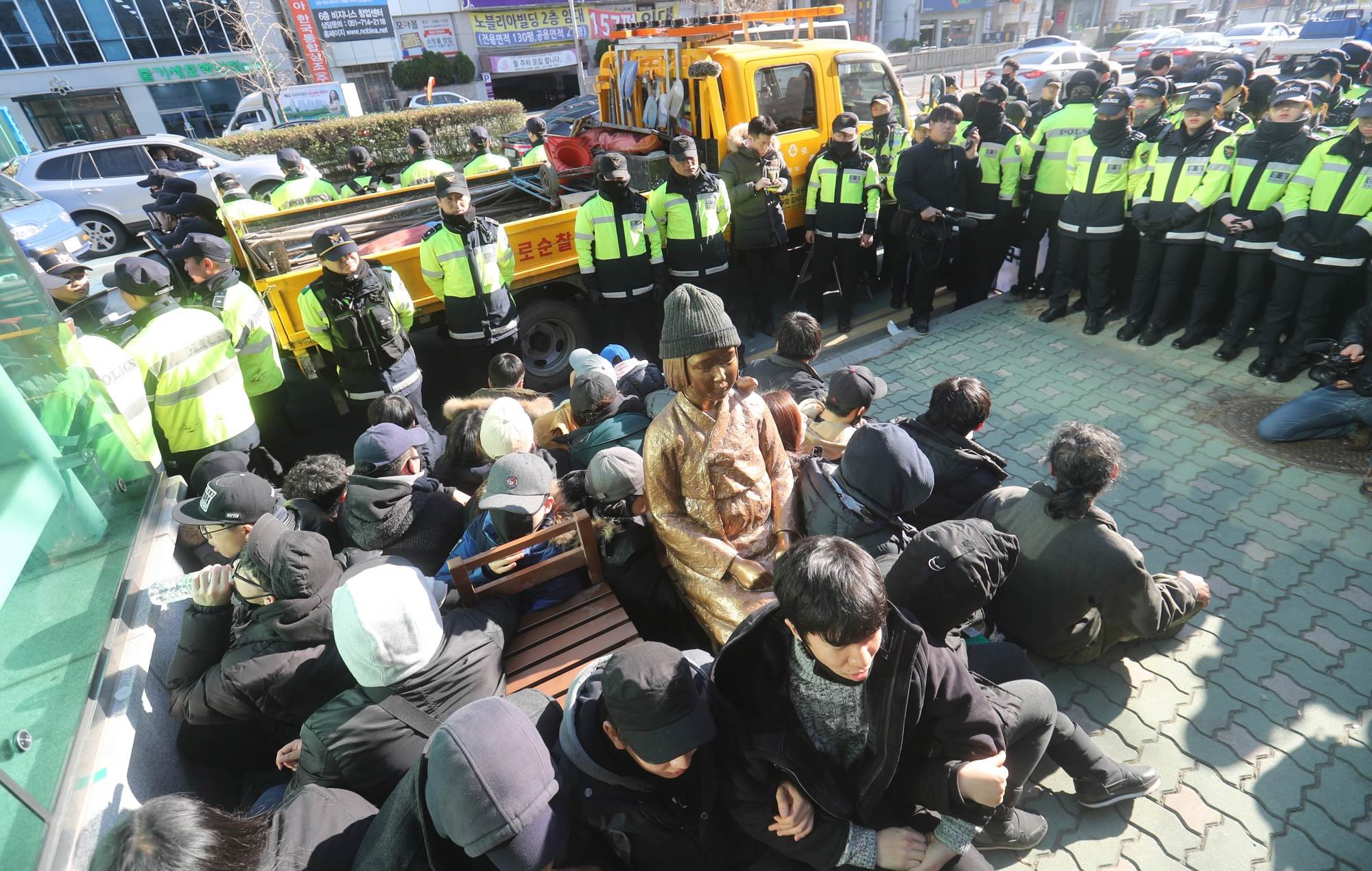
Politics
13:35, 06-Jan-2017
Tokyo recalls ambassador to S. Korea in 'comfort woman' statue row
Updated
10:32, 28-Jun-2018

Japan has decided to recall its ambassador to South Korea, Yasumasa Nagamine, over the erection of a new "comfort woman" statue in South Korea, local media quoted Chief Cabinet Secretary Yoshihide Suga as saying on Friday.

Suga answers questions during a press conference in Tokyo on January 6, 2016. /CFP Photo
Suga answers questions during a press conference in Tokyo on January 6, 2016. /CFP Photo
Japan will also halt currency swap talks and postpone high-level economic dialogue with South Korea, after a statue representing women forced into sexual slavery for Japanese military brothels before and during World War Two was put up near the Japanese consulate in Busan last month, according to the Japanese government's top spokesman.

A statue symbolizing women forced into wartime sexual slavery installed in front of the Japanese Consulate in the South Korean port city of Busan on Dec. 30, 2016. /CFP Photo
A statue symbolizing women forced into wartime sexual slavery installed in front of the Japanese Consulate in the South Korean port city of Busan on Dec. 30, 2016. /CFP Photo
"We have repeatedly asked South Korea to handle the resolution of this issue appropriately, but the situation has not improved, so we have taken this action," Suga was quoted as saying.
The Korean Peninsula was colonized by Japan from 1910 to 1945.

People sit around the statue while being surrounded by police in Busan on Dec. 30, 2016. /CFP Photo
People sit around the statue while being surrounded by police in Busan on Dec. 30, 2016. /CFP Photo
On December 28, 2015, the Park Geun-hye administration reached what was called a "final and irreversible" agreement with Japanese Prime Minister Shinzo Abe's cabinet on the "comfort women" issue. As part of the deal, Japan pledged one billion yen (8.3 million US dollars) into a support fund for surviving victims.
A handful of aged, surviving South Korean victims oppose the agreement, saying Abe has yet to sincerely apologize for past atrocities and admit the legal responsibility of the Japanese government for forcible recruitment of the victims during its colonization of Korea.

SITEMAP
Copyright © 2018 CGTN. Beijing ICP prepared NO.16065310-3
Copyright © 2018 CGTN. Beijing ICP prepared NO.16065310-3